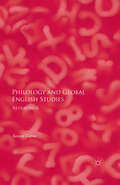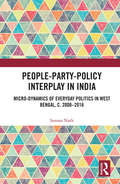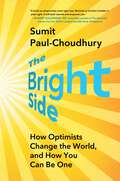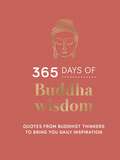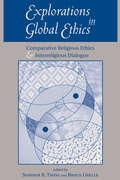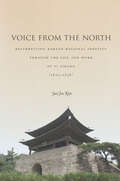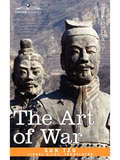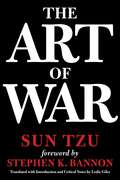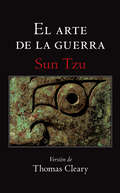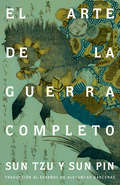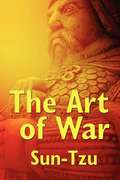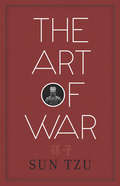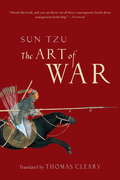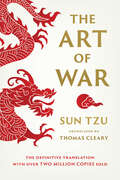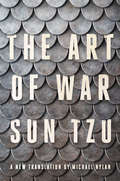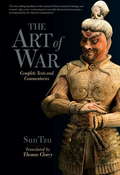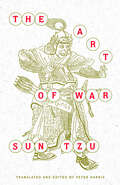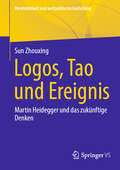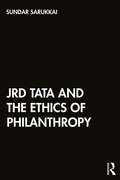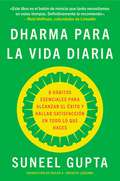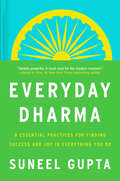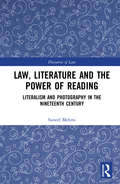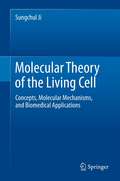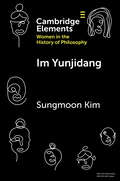- Table View
- List View
Philology and Global English Studies: Retracings
by Suman GuptaThis book retraces the formation of modern English Studies by departing from philological scholarship along two lines: in terms of institutional histories and in terms of the separation of literary criticism and linguistics.
People-Party-Policy Interplay in India: Micro-dynamics of Everyday Politics in West Bengal, c. 2008 – 2016
by Suman NathThis book analyses the political transition in West Bengal, India, which witnessed longest democratically elected Left regime of the world. It examines and compares micro-dynamics of political practices in India and delineates underlying political themes of state politics. The author explores the politics of land reform and the anti-land-acquisition movements which were critical points in the contemporary history of Bengal in independent India. The volume further delves into the caste and communal politics which had been latent until the Left Front’s loss in the state, as well as the what sets apart politics in West Bengal from other Indian states. Based on thorough ethnographic research, this volume will be of great interest to scholars and researchers of South Asian studies, politics and political processes, sociology and social anthropology.
The Bright Side: How Optimists Change the World, and How You Can Be One
by Sumit Paul-ChoudhuryIn the thought-provoking tradition of Steven Pinker&’s Enlightenment Now and Yuval Noah Harari&’s Homo Deus, a fascinating and reassuring look at the philosophy, psychology, and practice of optimism, and why being optimistic is a moral obligation—even in the face of seemingly insurmountable challenges.Scrolling through our daily newsfeeds we see violence and cruelty, turmoil and injustice, fake news and clickbait, and worsening environmental and social crises—just a few of the dark currents feeding a tidal wave of pessimism. In the face of so many challenges, how can we stay optimistic? And, more important, why should we? In The Bright Side, Sumit Paul-Choudhury answers these pressing questions, arguing that optimism is not only essential for overcoming the challenges we face, but also fundamental to human wellbeing. Drawing on a wide array of evidence—from biology to history, and from economics to meteorology—he delves into the underappreciated roots of optimism, examines its impact on mental health and professional success, and discusses why it has a power that wishful thinking lacks. Additionally, The Bright Side shows how we can apply the principles of optimism to cope with environmental crises, artificial intelligence, and social change. From the polar reaches to the world&’s mightiest cities, through inspirational figures including explorers, activists, and scientists, the book illustrates optimism in action. A beacon amid dark times, The Bright Side provides a lens through which we can see the challenges we face more clearly—and it also offers tools for solving them, to create a better future for ourselves and generations to come.
365 Days of Buddha Wisdom: Quotes from Buddhist Thinkers to Bring You Daily Inspiration
by Summersdale PublishersDiscover daily peace and wisdom with this pocket-sized collection of quotes from Buddhist teachers, writers and philosophers. Inside you will find 365 quotes from some of the greatest Buddhist thinkers of all time, including Thích Nhất Hạnh, Pema Chödrön, Alan Watts and, of course, the Buddha himself. Dive in and begin your own spiritual journey.
365 Days of Buddha Wisdom: Quotes from Buddhist Thinkers to Bring You Daily Inspiration
by Summersdale PublishersDiscover daily peace and wisdom with this pocket-sized collection of quotes from Buddhist teachers, writers and philosophers. Inside you will find 365 quotes from some of the greatest Buddhist thinkers of all time, including Thích Nhất Hạnh, Pema Chödrön, Alan Watts and, of course, the Buddha himself. Dive in and begin your own spiritual journey.
Explorations In Global Ethics: Comparative Religious Ethics And Interreligious Dialogue
by Sumner B TwissInspired by the 1993 Parliament of the Worlds Religions, this volume for the first time brings the scholarly discipline of comparative religious ethics into constructive collaboration with the community of interreligious dialogue. The contributors draw from both communities of discourse in addressing questions of method and theory and global moral issuessuch as human rights, distributive justice, politics of war, international business, the environment, and genocidein a cross-cultural context. }Inspired by the 1993 Parliament of the Worlds Religions, this volume for the first time brings the scholarly discipline of comparative religious ethics into constructive collaboration with the community of interreligious dialogue. Its design is premised on two important insights. First, interreligious dialogue offers to comparative religious ethics a new, more persuasive rationale, agenda of issues, and practical orientation. Second, comparative religious ethics offers to interreligious dialogue an arsenal of critical tools and methods which will enhance the sophistication of its practical work. In this way, both theory (a dominant concern and strength of comparative religious ethics) and praxis (a dominant concern and strength of interreligious moral dialogue) are joined together in mutual effort, each contributing to the benefit of the other.The volumes contributors share this vision of collaboration, drawing explicitly from both communities of discourse in a manner that crosses disciplinary and professional boundaries to deal creatively and constructively with important methodological and global moral issue. Although theory and practice cannot easily be separated in such a collaborative project, for the purpose of clarity, the volume is divided into two main parts. The first specifically engages questions of method, theory, and the social role of the public intellectual; the second, on substantive moral themes and issues, many of which were raised at the 1993 Parliament. Taken together, the volumes essays articulate and illustrate new ways of approaching contemporary moral concerns cross-culturally yet with a rigor appropriate to our complex and pluralistic world.
Voice from the North: Resurrecting Regional Identity Through the Life and Work of Yi Sihang (1672-1736)
by Sun Joo KimVoice from the Northresurrects the forgotten historical memory of the people and region in late Choson Korea while also enriching the social history of the country. Sun Joo Kim accomplishes this by examining the life and work of Yi Sihang, a historically obscure person from a hinterland in Korea's northwestern region who was also a member of the literati. Unlike many of his contemporaries, Yi Sihang left numerous writings on his region's history and culture, and on the political and social discrimination that he and others in his region faced from the central elite. This work explores a regional history and culture through the frames of microhistory and historical memory. Kim criticizes the historiographical problem of "otherizing" the northern region and fills a gap in Korean historiography—the lack of historical study of the northern region from a regional perspective, P'yongan Province in particular. The biographical format of this work engages readers in the investigation of a person's life within the changing world of his time and also creates a space where private and public intersect. Kim places Yi Sihang at the center of the historical stage while describing, analyzing, and reconstructing the world around him through his life story.
The Art of War
by Sun TsuWritten 2500 years ago, The Art of War is the oldest military treatise in the world, a classic study of competition and rivalry that has been utilized by soldiers ever since. Napoleon studied its strategies and tactics. It is required reading for intelligence personnel in the United States Marine Corps. "Warriors" of Wall Street and in corporation cultures rely on it for guidance. It's even been rumored to help players win at the board game Risk. This 1910 translation by the British Museum's Lionel Giles is the most popular one available, a highly readable version of this still startlingly relevant text.
Art of War
by Sun Tzu&“The art of war is of vital importance to the State. It is a matter of life and death, a road either to safety or to ruin. Hence it is a subject of inquiry which can on no account be neglected.&” There is a reason why five-star generals and Fortune 500 CEOs alike have consulted this classic book on the planning and conduct of military operations. Written in China more than two thousand years ago, The Art of War is an ancient Chinese military treatise attributed to Sun Tzu, a high-ranking military general, strategist, and tactician. The Art of War remains one of the most quoted and referenced how-to books ever written. Now, with a foreword by Stephen K. Bannon, this seminal work takes on renewed significance, offering a blueprint for success amidst the chaos of contemporary challenges. As we navigate the complexities of the twenty-first century, The Art of War stands as a beacon of strategic wisdom, guiding us through the turbulent waters of life, leadership, and conflict. Its profound truths, encapsulated in thirteen timeless chapters, illuminate the path to victory in any arena, whether it be the cutthroat world of business, the arena of politics, or the theater of war.
El arte de la guerra (Clásicos Ilustrados Ser. #Vol. 1)
by Sun Tzu Thomas ClearyRecopilado más de dos mil años atrás por un misterioso guerrero filósofo, El arte de la guerra sigue siendo, quizás, hoy en día, el libro de estrategia más prestigioso e influyente del mundo, estudiado en Asia por políticos modernos y ejecutivos con el mismo entusiasmo con el que fuera consultado en tiempos antiguos por jefes militares. Como estudio de la anatomía de las organizaciones en conflicto, El arte de la guerra se aplica en general a la competencia y al conflicto, en todo nivel, desde el interpersonal al internacional. Su objetivo es la invencibilidad, la victoria sin dar batalla, y la fuerza inexpugnable gracias a la comprensión de la física, la política y la psicología del conflicto. Compiled more than two thousand years ago by a mysterious warrior-philosopher, The Art of War is still perhaps the most prestigious and influential book of strategy in the world today, as eagerly studied in Asia by modern politicians and executives as it has been by military leaders since ancient times. As a study of the anatomy of organizations in conflict, The Art of War applies to competition and conflict in general, on every level from the interpersonal to the international. Its aim is invincibility, victory without battle, and unassailable strength through understanding of the physics, politics, and psychology of conflict.
El arte de la guerra completo
by Sun TzuPor mas de dos siglos, El arte de la guerra ha sido la guía mas completa de estrategia militar. Un clásico de la literatura china, se ha convertido en lectura esencial para quienes buscan el éxito, tanto en la vida personal como en los negocios. Uno de los rasgos más interesantes del texto de Sun Tzu es que no pareciera que fue compuesto como un libro de contenido estrictamente castrense. Claramente el autor tenía una intención más amplia que la simple exposición de una serie de técnicas limitadas a las operaciones militares. Se trata de una obra colmada de temas filosóficos que obligan al lector a examinar su ser, su relación con otros y la naturaleza de las circunstancias, para así obtener un objetivo deseado. De manera tal que El arte de la guerra se presta para ser interpretado y aplicado a toda aquella situación que involucre la necesidad de resolver conflictos de una manera eficiente y expedita. Entre esas circunstancias también se encuentran, naturalmente, nuestros propios conflictos internos, en los cuales tratamos de vencer nuestros defectos o debilidades, por lo que el enemigo del cual Sun Tzu escribe se puede expresar de muchas formas a lo largo de nuestras vidas. En otras palabras, El arte de la guerra parece contener y develar las doctrinas esenciales para alcanzar el éxito de muchas maneras y en muchos contextos. De la introducción de Alejandro Bárcenas
The Art of War
by Sun TzuThis is the most important book ever written about warfare and conflict. Lionel Giles' translation is the definitive edition. The Art of War can be used and adapted in every facet of your life. This book explains when and how to go to war, as well as when not to. Learn how to win any conflict whether it be on the battlefield or in the boardroom. This deluxe edition contains two versions of The Art of War. The first has no commentary so that you can immerse yourself directly in Sun Tzu's work. The second version includes Lionel Giles' indispensable commentary.
The Art of War (Penguin Modern Classics #909)
by Sun TzuRegarded as the world's oldest military treatise, this compact volume has instructed officers and tacticians for more than 2,000 years. From its origins in China, The Art of War traveled the world to inform the strategies of Napoleon and World War II generals. More recently, it has taken on a new life as a guide to competing successfully in business, law, and sports.All of The Art of War's concepts retain their value to modern readers, from the prudence of circumventing a strong opponent and taking advantage of a weak one to the wisdom of preparedness and flexibility. Other topics include strategy, tactics, maneuvering, communications, the treatment of soldiers, and the worth of well-trained officers. History enthusiasts, business thought leaders, and anyone intrigued by competition and rivalry will appreciate this elegant edition of the classic work.
The Art of War (Shambhala Library #909)
by Sun TzuConflict is an inevitable part of life, according to this ancient Chinese classic of strategy, but everything necessary to deal with conflict wisely, honorably, victoriously, is already present within us. Compiled more than two thousand years ago by a mysterious warrior-philosopher, The Art of War is still perhaps the most prestigious and influential book of strategy in the world, as eagerly studied in Asia by modern politicians and executives as it has been by military leaders since ancient times. As a study of the anatomy of organizations in conflict, The Art of War applies to competition and conflict in general, on every level from the interpersonal to the international. Its aim is invincibility, victory without battle, and unassailable strength through understanding the physics, politics, and psychology of conflict.
The Art of War (Skylight Illuminations Ser.)
by Sun Tzu Thomas ClearySun Tzu's Art of War, compiled more than two thousand years ago, is a study of the anatomy of organizations in conflict. It is perhaps the most prestigious and influential book of strategy in the world today. Now, this unique volume brings together the essential versions of Sun Tzu's text, along with illuminating commentaries and auxiliary texts written by distinguished strategists. The translations, by the renowned translator Thomas Cleary, have all been published previously in book form, except for The Silver Sparrow Art of War, which is available here for the first time. This comprehensive collection contains: The Art of War: This edition of Sun Tzu's text includes the classic collection of commentaries by eleven interpreters. Mastering the Art of War: Consisting of essays by two prominent statesmen-generals of Han dynasty China, Zhuge Liang and Liu Ji, this book develops the strategies of Sun Tzu's classic into a complete handbook of organization and leadership. It draws on episodes from Chinese history to show in concrete terms the proper use of Sun Tzu's principles. The Lost Art of War: Written more than one hundred years after Sun Tzu's text, by Sun Bin, a linear descendant of Sun Tzu, this classic of political and military strategy is faithful to the principles of The Art of War, while developing their practical application much further. The Silver Sparrow Art of War: A version of Sun Tzu's Art of War based on a manuscript of the classic text discovered at a Chinese archeological site in China's Shandong Province in 1972, which contains previously unknown fragments.
The Art of War: A New Translation By Michael Nylan
by Sun TzuFor the first time in any modern language, a female scholar and translator reimagines The Art of War. Sun Tzu’s ancient book of strategy and psychology has as much to tell us today as when it was first written 2,500 years ago. In a world forever at odds, his rules for anticipating the motivations and strategies of our competitors never cease to inspire leaders of all kinds. Michael Nylan, in her provocative introduction, sees new and unexpected lessons to be learned from The Art of War—in business ventures, relationships, games of skill, academic careers, and medical practices. Strategy, like conflict, is woven into society’s very roots. Nylan’s crisp translation “offers a masterly new evaluation of this classic work, which balances the overtly military content with a profound and thought-provoking analysis” (Olivia Milburn). Readers newly engaging with ancient Chinese culture will be inspired by Nylan’s authoritative voice. Informed by years of scholarly study, Nylan is uniquely placed to introduce readers to Sun Tzu’s classic work through her detailed annotations on culture and the intricacies of translating ancient Chinese into modern English. She proves that Sun Tzu is more relevant than ever, helping us navigate the conflicts we know and those we have yet to endure.
The Art of War: Complete Texts and Commentaries (Shambala Pocket Classics Ser.)
by Sun Tzu Thomas ClearySun Tzu's Art of War, compiled more than two thousand years ago, is a study of the anatomy of organizations in conflict. It is perhaps the most prestigious and influential book of strategy in the world today. Now, this unique volume brings together the essential versions of Sun Tzu's text, along with illuminating commentaries and auxiliary texts written by distinguished strategists. The translations, by the renowned translator Thomas Cleary, have all been published previously in book form, except for The Silver Sparrow Art of War, which is available here for the first time. This collection contains:The Art of War: This edition of Sun Tzu's text includes the classic collection of commentaries by eleven interpreters.Mastering the Art of War: Consisting of essays by two prominent statesmen-generals of Han dynasty China, Zhuge Liang and Liu Ji, this book develops the strategies of Sun Tzu's classic into a complete handbook of organization and leadership. It draws on episodes from Chinese history to show in concrete terms the proper use of Sun Tzu's principles.The Silver Sparrow Art of War: A version of Sun Tzu's Art of War based on a manuscript of the classic text discovered at a Chinese archeological site in China's Shandong Province in 1972, which contains previously unknown fragments.Note: The electronic edition of this book does not contain The Lost Art of War, as seen in the paperback edition.
The Art of War: Large Print (Vintage Classics)
by Sun TzuA new translation of the ancient Chinese military classic that is widely admired by military and business strategists—with an introduction that provides sweeping historical context, and notes featuring contemporary commentary on Sun Tzu's wisdom over the centuries.For more than two thousand years, The Art of War has provided leaders with essential tactical and management advice. An elemental part of Chinese culture, it has also become a touchstone in the West for achieving success, whether on the battlefield or in business. This Vintage Classics edition features a brilliant translation by Peter Harris, first published by Everyman's Library in 2018. Alongside the pithy and powerful ancient text, Harris includes: • Notes • A bibliography • A chronology of Chinese dynasties • A map • Extracts from the canon of classical Chinese commentators • An illuminating introduction on the warrior-philosopher Sun Tzu and the role of The Art of War in history and today
Logos, Tao und Ereignis: Martin Heidegger und das zukünftige Denken (Persönlichkeit und weltpolitische Gestaltung)
by Sun ZhouxingDie Begriffe Logos, Tao und Ereignis stehen im Zentrum dieser Aufsatzsammlung, die sich auf das künftige Denken im Ausgang von Martin Heideggers Philosophie unter der Voraussetzung der Geschichtlichkeit des Seins und unter Einbezug der multikulturellen Ressourcen der Menschheit bezieht. Unter den philosophischen Diskursen des 20. Jahrhunderts ist Heideggers Ereignis wahrscheinlich das rätselhafteste. Der Autor hat diese acht Aufsätze, die erstmals in deutscher Sprache erscheinen, auf verschiedene Art und Weise überarbeitet, erweitert und verbessert sowie inhaltlich und formal vereinheitlicht. So erhält eine Heidegger-Interpretation aus chinesischer Perspektive Eingang in die Wirkungs- und Rezeptionsgeschichte des deutschen Philosophen.
JRD Tata and the Ethics of Philanthropy
by Sundar SarukkaiThis book introduces readers to the ethics of philanthropy, particularly in the Indian context. Drawing on JRD Tata’s philosophy and approach to business, it shows how business and philanthropy were intrinsically related for him. JRD Tata was arguably one of the most influential businessmen in post-Independence India. He was instrumental in not only expanding the Tata businesses but was also known for his impact on the conduct of business as well as his support for various national projects including research and education. He introduced key labour laws in his factories, which later became the model for the Indian government. He was also part of government institutions such as Air India. By discussing ideas such as trusteeship, the notion of profit, the relation between public and private, and social welfare, the book offers an intellectual map of JRD’s thoughts and an original perspective on their significance for an ethics of philanthropy in general. It provides new insights into the nature of ethical problems in the Indian context as well as ways to negotiate with them based on JRD’s work and reflections. It further creates a more meaningful understanding of Corporate Social Responsibility in the present global economy. Lucid and comprehensive, this book will be useful to scholars, researchers and faculty in departments of management and business studies, social work, sociology, economics and philosophy, as well as across social sciences. It will be of great interest to philanthropy organisations, non-governmental organisations, business schools, industry bodies, corporates, and those in leadership and management.
Everyday Dharma \ Dharma para la vida diaria (Spanish edition): 8 hábitos esenciales para alcanzar el éxito y hallar satisfacción en todo lo que haces
by Suneel GuptaEncuentra tu dharma —tu llamado interior— y aprende a integrar ambición, trabajo y bienestar para crear una vida equilibrada y dichosa con esta guía práctica del reconocido conferencista, autor bestseller y cofundador del Gross National Happiness Center.Hemos sido condicionados, desde temprana edad, a creer que un día alcanzaremos un momento de “llegada”. Sin importar cuánto logremos o acumulemos, no nos sentimos tan satisfechos o plenos como pensábamos que nos sentiríamos. Exhaustos, nos convertimos en profesionales agotados y cínicos que cuestionan el propósito de todo.Un experto en la felicidad y el trabajo, Suneel Gupta, sostiene que por mucho tiempo la sociedad ha estado obsesionada en el “futuro del trabajo” y ha ignorado el “futuro de la riqueza”. Hemos segmentado el trabajo y el bienestar, e ignorado el hecho de que ambos son esenciales para mantener el éxito. Hemos asumido que el éxito exterior lleva al bienestar, a pesar de que la historia nos muestra que nunca ha sido así.En Everyday Dharma, Suneel nos ayuda a romper este ciclo negativo. Con su fascinante capacidad narrativa, entreteje experiencias personales, historia, ciencia, filosofía occidental y modalidades orientales en este libro iluminador y prescriptivo. Comienza por ayudarnos a identificar nuestro dharma, la esencia de lo que somos. Cuando estás en tu Dharma, te sientes seguro, creativo y empático, con un sentido de propósito, y todo eso resplandece en tu vida y tu trabajo.Everyday Dharma ofrece un enfoque accesible de tres pasos para descubrir, comprender y vivir tu "vocación sagrada". Contiene autoevaluaciones que te ayudarán a identificar tus pasiones y poderosos rituales para crear nuevos hábitos: prácticas antiguas respaldadas por la ciencia y presentes en diversas fuentes culturales, como las novelas de Toni Morrison, las letras de Jimi Hendrix y las pinturas de Frida Kahlo.Find your dharma—your inner calling—and learn to integrate ambition, work, and wellbeing to create a balanced, joyous life with this practical, life-changing guide from the beloved speaker, bestselling author, and co-founder of the Gross National Happiness Center.We’ve been conditioned, from an early age, to believe that one day we’ll reach a moment of “arrival.” But no matter how much we achieve or acquire we still don’t feel as satisfied or as fulfilled as we thought we would be. Exhausted, we become burned out and cynical, questioning the purpose of it all.An expert on happiness and work, Suneel Gupta argues that for too long society has been fixated on the Future of Work and ignored the Future of Worth. We’ve compartmentalized work and well-being and ignored the fact that both are essential for sustained success. We’ve assumed that outer success leads to inner well-being–despite history showing us that this has never been the case.In Everyday Dharma, Suneel helps us break this negative cycle. A captivating storyteller, he weaves personal stories, history, science, Eastern philosophy, and Western modalities in this engaging, enlightening, and prescriptive book. He begins by helping us identify our dharma, the essence of who we are. When you’re in your Dharma, you feel confident, creative, and caring, with a sense of purpose, and that shines through your life and work.Everyday Dharma provides an accessible three-step approach to discovering, understanding, and living your “sacred calling.” At its center are self-assessments to help you identify your passions and powerful rituals for building new habits—ancient practices supported by science and found in diverse cultural sources, including Toni Morrison’s novels, Jimi Hendrix’s lyrics, and Frida Kahlo’s paintings, and used by the likes of
Everyday Dharma: 8 Essential Practices for Finding Success and Joy in Everything You Do
by Suneel GuptaFind your dharma—your inner calling—and learn to integrate ambition, work, and wellbeing to create a balanced, joyous life with this practical, life-changing guide from the beloved speaker, bestselling author, and co-founder of the Gross National Happiness Center. We’ve been conditioned, from an early age, to believe that one day we’ll reach a moment of “arrival.” But no matter how much we achieve or acquire we still don’t feel as satisfied or as fulfilled as we thought we would be. Exhausted, we become burned out and cynical, questioning the purpose of it all.An expert on happiness and work, Suneel Gupta argues that for too long society has been fixated on the Future of Work and ignored the Future of Worth. We’ve compartmentalized work and well-being and ignored the fact that both are essential for sustained success. We’ve assumed that outer success leads to inner well-being–despite history showing us that this has never been the case.In Everyday Dharma, Suneel helps us break this negative cycle. A captivating storyteller, he weaves personal stories, history, science, Eastern philosophy, and Western modalities in this engaging, enlightening, and prescriptive book. He begins by helping us identify our dharma, the essence of who we are. When you’re in your Dharma, you feel confident, creative, and caring, with a sense of purpose, and that shines through your life and work.Everyday Dharma provides an accessible three-step approach to discovering, understanding, and living your “sacred calling.” At its center are self-assessments to help you identify your passions and powerful rituals for building new habits—ancient practices supported by science and found in diverse cultural sources, including Toni Morrison’s novels, Jimi Hendrix’s lyrics, and Frida Kahlo’s paintings, and used by the likes of Nelson Mandela, Dr. Martin Luther King, and Mahatma Gandhi.Finding your dharma empowers you to let go of anxiety, follow your wildest ambitions, produce your life’s work, and experience true joy.
Law, Literature and the Power of Reading: Literalism and Photography in the Nineteenth Century
by Suneel MehmiAt the intersection of law, literature and history, this book interrogates how a dominant contemporary idea of law emerged out of specific ideas of reading in the nineteenth century. Reading shapes our identities. How we read shapes who we are. Reading also shapes our conceptions of what the law is, because the law is also a practice of reading. Focusing on the works of key Victorian writers closely associated with legal practice, this book addresses the way in which the identity of the reader of law has been modelled on the identity of the political elite. At the same time, it shows how other readers of law have been marginalized. The book thus shows how a construction of the law has emerged from the ordering of a power that discriminates between different readers and readings. More specifically, and in response to the emerging media of photography – and, with it, potentially subversive ideas of exposure and visibility – the book shows that there have been dominant, hidden and unrecognised guides to legal reading and to legal thought. And in making these visible, the book also aims to make them contestable. This secret history of law will appeal to legal historians, legal theorists, those working at the intersection of law and literature and others with interests in law and the visual.
Molecular Theory of the Living Cell
by Sungchul JiThe book presents the first comprehensive molecular theory of the living cell ever published since the cell doctrine was formulated in 1838-1839. It introduces into cell biology over thirty key concepts, principles and laws imported from physics, chemistry, computer science, linguistics, semiotics and philosophy. The author formulates physically, chemically and enzymologically realistic molecular mechanisms to account for basic living processes such as ligand-receptor interactions, enzymic catalysis, force-generating mechanisms in molecular motors, chromatin remodelling, and signal transduction. Possible solutions to basic and practical problems facing contemporary biology and biomedical sciences have been suggested, including pharmacotherapeutics and personalized medicine.
Im Yunjidang (Elements on Women in the History of Philosophy)
by Sungmoon KimThis Element aims to critically examine the philosophical thought of Im Yunjidang 任允摯堂 (1721–93), a female Korean Neo-Confucian philosopher from the Chosŏn 朝鮮 dynasty (1392–1910), and to present her as a feminist thinker. Unlike most Korean women of her time, Yunjidang had the exceptional opportunity to be introduced to a major philosophical debate among Korean Neo-Confucians, which was focused on two core questions-whether sages and commoners share the same heart-mind, and whether the natures of human beings and animals are identical. In the course of engaging in this debate, she was able to reformulate Neo-Confucian metaphysics and ethics of moral self-cultivation, culminating in her bold ideas of the moral equality between men and women and the possibility of female sagehood. By proposing a 'stage-approach' to feminism that is also sensitive to the cultural context, this Element shows that Yunjidang's philosophical thought could be best captured in terms of Confucian feminism.
